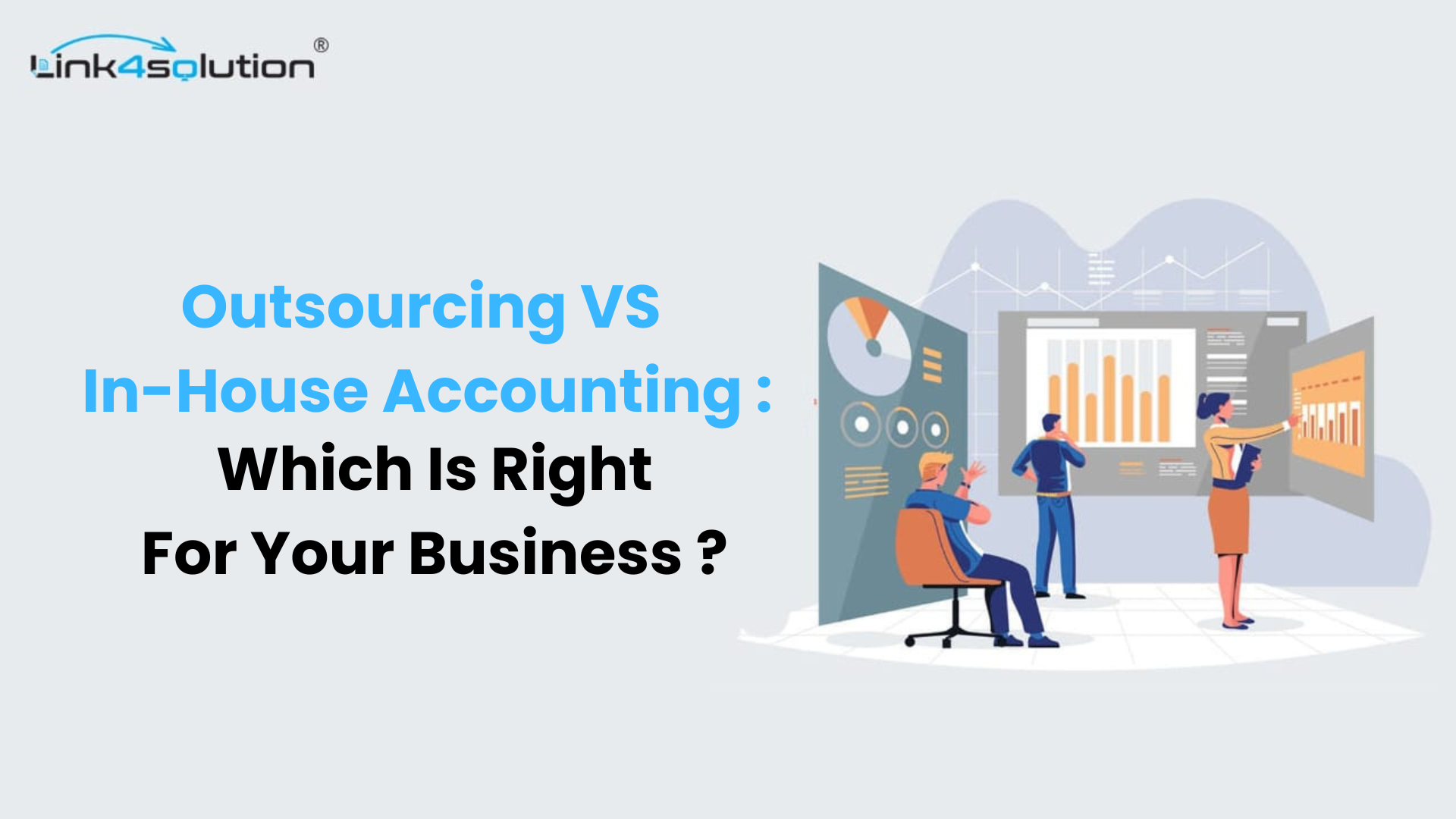In today’s fast-paced business environment, it is crucial to effectively and precisely handle financial matters. Companies often find themselves at a crossroads when it comes to deciding whether to keep accounting tasks in-house or outsource them. There are pros and cons to both options, and the decision ultimately comes down to the unique circumstances of each business.
Understanding In-House Accounting
Having an in-house accounting team means having a dedicated group of accountants within your company who handle all financial tasks. This method guarantees that financial procedures are managed internally by staff members who are completely immersed in your organizational culture and operations.
Benefits of In-House Accounting
1. Complete Oversight: Having an in-house team allows you to have complete control and supervision over your accounting processes, giving you the ability to make immediate adjustments and ensure they align with your business objectives.
2. Personalized Solutions: In-house accountants have the ability to customize their practices to perfectly align with the unique needs and intricacies of your business, providing tailored solutions and strategies.
3. Accessibility: Having an in-house team allows for easy access to your accountants, enabling quick consultations, real-time problem-solving, and ongoing support.
Drawbacks of In-House Accounting
1. Increased Expenses: Maintaining a full-time accounting team can result in higher costs due to salaries, benefits, training, and other overhead expenses associated with an internal department.
2. Resource Constraints: SMEs often struggle to allocate enough resources to establish and sustain a capable in-house accounting team.
3. Limited Expertise: In-house teams may not have the same breadth of knowledge and experience in industry best practices as external accounting firms.
Understanding Outsourcing Accounting
Outsourcing accounting entails the enlistment of external firms or professionals to manage your financial responsibilities. This strategy utilizes the knowledge and skills of dedicated accounting service providers to effectively handle your company’s financial matters.
Benefits of Outsourcing Accounting
1. Affordability: Outsourcing offers a more budget-friendly solution by removing the requirement for permanent salaries, benefits, and overhead expenses. Our pricing structure is designed to ensure that you only pay for the specific services that you require.
2. Access to Expertise: Outsourcing grants you the opportunity to work with a team of seasoned accountants who possess a wide range of skills and extensive industry knowledge. This guarantees top-notch financial management of the highest calibre.
3. Scalability: Outsourced accounting services provide the advantage of flexibility and scalability, enabling you to customize the level of service according to your business requirements and expansion.
4. Prioritize Core Business: By delegating accounting tasks to external professionals, you can dedicate more time and energy to your core business activities, resulting in increased productivity and accelerated growth.
Drawbacks of Outsourcing Accounting
1. Reduced Control: When you outsource your accounting processes, you may have to give up some control, which can be a concern for businesses that prefer to have a more hands-on approach to management.
2. Communication Challenges: Collaborating with external providers can sometimes result in communication gaps or delays, especially when working with outsourcing firms in different time zones.
3. Data Security: When it comes to entrusting sensitive financial information to an external provider, it’s crucial to carefully consider the measures in place to ensure data security and confidentiality.
Factors to Take into Account When Making a Decision
When considering the choice between outsourcing and in-house accounting, there are several important factors that should be taken into account:
1. Business Size and Complexity: Large enterprises with intricate financial requirements may find value in having an in-house team to provide a personalized approach, while small and medium-sized enterprises (SMEs) may discover that outsourcing is a more practical and cost-effective option.
2. Considering Budget Constraints: Take a close look at your budget to assess whether you have the means to sustain an in-house team or if outsourcing might be a more cost-effective option.
3. Level of Expertise Required: Take into account the level of expertise and specialized knowledge necessary for your industry. Outsourcing firms possess a wide range of expertise to effectively tackle various accounting challenges.
4. Consider your control and customization needs: Having an in-house team allows for more control over the work, while outsourcing offers the advantage of flexibility and scalability.
5. Achieve your growth objectives by aligning your accounting approach. Outsourcing offers the flexibility required to accommodate rapid expansion, while internal teams guarantee stability and consistency.
In conclusion
Deciding whether to outsource or keep accounting in-house is a critical choice that relies on the specific requirements and situation of your company. Both options have their own set of benefits and possible drawbacks. By taking into account factors such as budget, expertise, control, and growth objectives, you can make a well-informed decision that is in line with your business goals.
Having an in-house accounting system allows for greater control and the ability to tailor it to specific needs. However, it also comes with increased expenses and the possibility of limited resources. However, outsourcing provides a cost-effective solution, grants access to specialized knowledge, and allows for scalability. It is important to note that outsourcing may come with reduced control and potential communication difficulties.
In the end, making the correct decision will allow you to efficiently handle your finances, foster the growth of your business, and attain lasting success. Consider your priorities, analyse the advantages and disadvantages, and choose the option that aligns with your company’s financial requirements and long-term goals.




